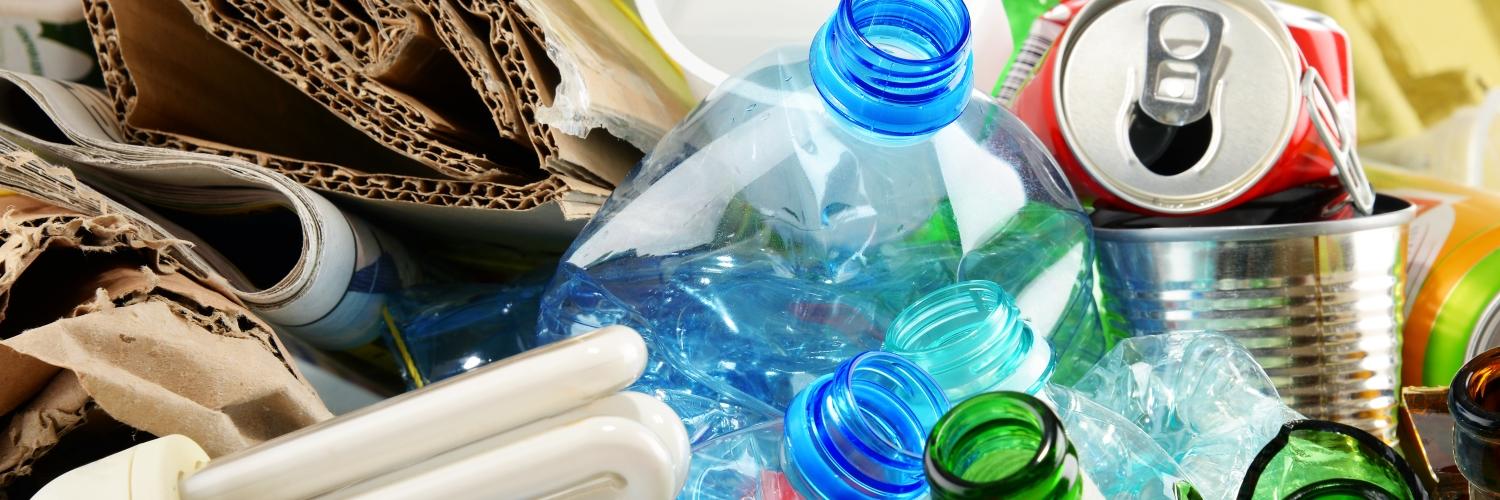
News
13 July 2020
DWMA – Annual Review 2019
The Dutch Waste Management Association (DWMA) has published its Annual Review 2019. In this Annual Review we look back at some important issues that had our attention in 2019.
Boris van der Ham (DWMA president):
"Looking back on 2019 seems a bit strange now. But even during the corona crisis the DWMA continues to work on the transition to the circular economy and remains active on all fronts."
Quality
Maintaining and improving the quality of separately collected waste streams remains a key priority for the DWMA. This is essential to ensure that recycled materials can be reused in the manufacture of high-grade products. In 2019 the DWMA, Rijkswaterstaat (the government agency for environment, infrastructure and water management) and the Association for Refuse and Cleansing Management (NVRD) drew up a plan to improve the quality of food and garden waste (FGW) and recover more of it from household residual waste. Improvements to the quality of collected FGW are much needed as our analysis of FGW samples showed that contamination levels are rising. The quality of other recycling streams is also declining, which makes recycling more difficult.
Import tax
In 2019 the waste sector was unpleasantly surprised by the introduction of an import tax on foreign waste. The DWMA campaigned to have the tax abolished and presented an alternative plan to deliver the CO2 emissions reductions the tax is supposed to achieve. The sector’s plan guarantees a 0.1 Mtonne reduction in CO2 emissions, which the tax cannot do. Unfortunately, the government had too little time to properly evaluate the plan and the import tax was introduced on 1 January 2020. The government promised to reopen discussions on the alternative plan in 2020.
Substances of concern
The policy on substances of very high concern (SVHC) affects waste companies in various ways. The DWMA is in absolute agreement with the aim of banning the use of SVHC if they present a risk to human health and the environment. There are substances that we certainly do not want in the production and consumption chain, and they must be sent for safe and environmentally sound treatment in waste-to-energy plants or isolated in landfills. However, legislation should not present unnecessary obstacles to recycling. We are of the opinion that policy should take the actual risks of SVHC to human health and the environment into account.
Recycling as the starting point
The DWMA was one of the first parties to join the Global Recycling Foundation at the beginning of 2019 and took an active part in Global Recycling Day 2019. In the DWMA’s vision for the transition to the circular economy, recycling is the starting point for the design, production and purchase of products. The DWMA called attention to this during Global Recycling Day. The DWMA also calls on the Dutch government and municipalities to provide better information on waste separation. A consumer study for the DWMA shows that it is not always clear which waste belongs in which recycling stream. More clarity will lead to better quality separated streams, which will make recycling easier and bring us closer to the circular economy.
Health and safety
Fire prevention is an important topic for the DWMA. To tackle the problem of waste fires, the DWMA and value chain partners established a task force in 2019. A key focus is on the proper disposal of lithium ion batteries, which are a major cause of fires. The DWMA highlighted this issue during National Recycling Week in October 2019. In the interests of promoting health and safety the DWMA and its members also took part in the second annual Safety Week, and also helped to eradicate infestations of oak processionary moth caterpillars.
In 2019 the DWMA and its members came to the assistance of AEB Amsterdam when for safety reasons the company saw no other option than to close four of its six incineration lines. The waste that AEB could no longer accept was treated by other operators. Temporary buffer capacity has been created and further capacity has been made available by temporarily reducing waste imports.
See also
